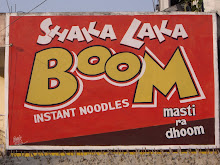Before i came to Japan i knew it was famous for a few things (Samurais, bullet trains, kimonos, sake, you can probably make your own little list) but there’s one other thing that seems to be more ubiquitous than all of the above and only becomes obvious after you’ve been here a while. It’s a game that is present near every train station and along almost every road. They’re a visual and audio abscess on the urban landscape of the county. The buildings that house them are almost always gaudy, sometimes angular, boxes that shout out colours, lights and a waterfall of sound to anybody within listening distance all day, every day. It is a game that i’ve only ever seen in Japan. It’s a slot machine arcade game that divides the country and causes the end of relationships, jobs and even lives. It is, of course, Pachinko.
Pachinko is an arcade game that, to my foreign eyes, looks utterly unfathomable. It appears to be some kind of pin ball slot machine hybrid created by somebody who was both hard of hearing and colour blind. The basic premise of the game might be, i think, to fire some pinballs around a circle and see how many fall through some pins and make it to the bottom. It constantly makes lots of noises and lights flash and you win some money and suffer from sensory overload. Perhaps. It wouldn’t be so bad if there was only one of these weird machines sat in the corner of a shit pub but Pachinko has become so popular that they have Pachinko parlours custom built to house row after row of the blinking, flicking, singing, pinball shitting idiot machines. The Pachinko parlours are always painted orange or green or sky blue or a combination of all of them and they have slogans in English such as Entertainment Heaven or Pleasure Land or Enjoy Kingdom. So, a nice, modest, welcoming, understated business then.
I normally treat Pachinko parlours like a disease but i went in one for the first time the other day to see if it was as bad as it seemed. It was worse. There were hundreds of the slot machines in rows with zombie looking people sat in front of them watching pinballs flick around, oblivious to the volume level and cigarette fumes. It was difficult to hear, hard to concentrate through the colours and not that nice to breathe. Still, the zombies seemed to enjoy themselves as the machines vomited sounds, colours and, occasionally, money at them so who am i to judge? One of the Pachinko attendants (who, i assume looks after all the balls) asked me a question that i could only guess was, “Can i help you?” I thought for a second, shrugged and said, “Hmm, sorry, no” and left.
Apparently Pachinko started as a children’s game at fun fairs before World War II and after the war became a game where you could win prizes such as food or gifts and has since morphed into a slot machine that couldn’t be more uniquely Japanese if it was made out of raw fish and was the shape of Mount Fuji. It has spawned professional Pachinko players who know how to spot a machine that has better placed pins and therefore more chance of paying out money and can earn themselves 10,000 yen a day. Or bankruptcy. People queue outside waiting for the doors to open at 10 o’clock to rush in and sit at the best machine that has the biggest chance of a payout. There’s a whole slot machine gambling subculture here that seems to live for Pachinko and nothing else. I’ve been told by more than one person of a story where a woman left her kids in the car and went to play Pachinko. It was a hot summer day and the car windows were shut. She sat playing for hours and when she came back outside the kids had suffocated and died (i think it’s an urban legend or a crazy one off story but i’m told this happens every year).
It seems to divide opinion among Japanese themselves. It’s either a fat waste of time and money or you’re addicted to it. Nobody ever says, “What? Pachinko? Yeah, s’alright i guess. I’ve played it a few times.” It’s abhorrence or addiction. But, then again, why wouldn’t it be popular? Japan loves games. This is the home of Mario and Nintendo. There are arcade centres filled with racing games, shoot ‘em ups, grab-a-cuddly-toy-you-don’t-even-want games and those things where you bet on small plastic horses running a computerised race that appear massively out of place in a Japanese city, as if they’ve been nicked from an English seaside town and dumped here by mistake. If a sizable minority of the population weren’t addicted to Pachinko it would be Tetris or PacMan or Virtua Cop 3. And then it wouldn’t be unique and famous, would it?
Sunday, May 29, 2011
Subscribe to:
Post Comments (Atom)

No comments:
Post a Comment